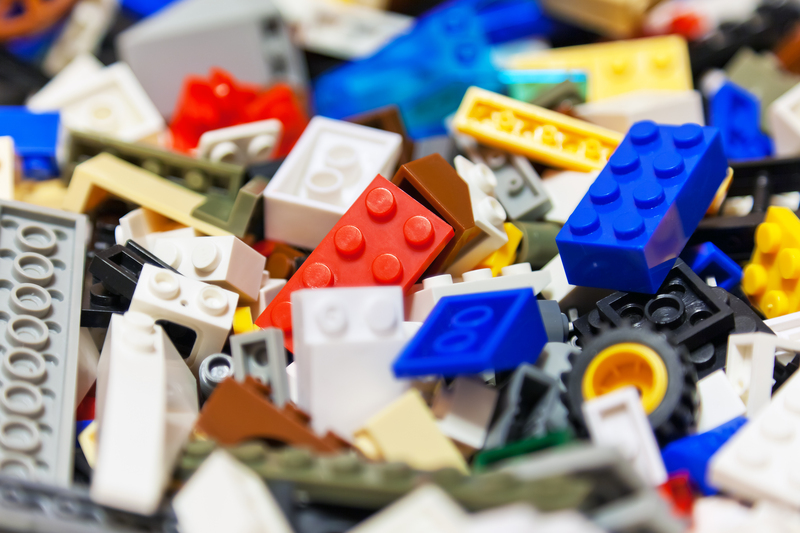Eco Friendly Ways to Dispose of Old Pots and Pans
When it's time to say goodbye to your trusty cookware, how you handle their disposal matters greatly for the environment. Old pots and pans often end up in landfills, taking generations to break down and contributing to global waste problems. Fortunately, there are eco-friendly ways to dispose of old pots and pans that not only help reduce environmental impact, but may also benefit your local community. In this comprehensive guide, we'll explore a variety of creative, responsible, and sustainable options for giving your unwanted cookware a second life.
Why Eco Friendly Cookware Disposal Matters
Before diving into the specific methods, it's important to understand why environmentally friendly cookware disposal is essential. Most cookware--especially nonstick, aluminum, and stainless steel--contains metals and coatings that can leach chemicals into the soil and water if not properly disposed of. By adopting eco-conscious disposal habits, you can help:
- Reduce landfill waste and conserve natural resources
- Support recycling initiatives that save energy and expense
- Prevent hazardous substances from contaminating ecosystems
- Promote a circular economy by reusing and repurposing existing materials

Assess the Condition: Could Your Old Cookware Be Reused?
Before you consider disposal routes, assess the condition of your old pots and pans. If there's still some life left in them, reuse is typically the most eco-friendly option. Here's what to check:
- Handles: Are they secure and safe?
- Cooking Surface: Is the non-stick coating chipping or scratched? Is rust present?
- Warping and Dents: Are they easily fixable?
If they're still usable, don't throw them out! Let's explore your options:
1. Donate Old Pots and Pans
Many organizations welcome gently used kitchenware. Donation helps extend the life of your items and supports those in need. Consider:
- Local thrift shops or charity stores
- Homeless shelters and soup kitchens
- Community centers or churches
Tip: Ensure your donations are clean and in working order. Call ahead to verify if they'll accept old cookware!
2. Give Away to Friends, Family, or Online
Perhaps someone in your network could use them. Post on platforms like:
- Freecycle
- Facebook Marketplace
- Buy Nothing Groups
Giving away old pots and pans directly keeps them out of landfills and in use longer.
3. Repurpose Old Pots and Pans
Even if your cookware is a little worse for wear, you can get creative! Here are some repurposing ideas:
- Turn a deep pan into a flower pot or herb planter
- Use old baking sheets as drip trays for gardening
- Make wall decor or an art project out of unique shapes
- Transform into storage containers--mount frying pans for fruit or spice racks
Repurposing your cookware adds rustic charm to your home or garden, while extending their usefulness.
Eco-Friendly Disposal Options for Old Cookware
If reuse or donation isn't suitable--maybe the cookware is broken, unsafe, or simply too worn out--you still have several sustainable cookware disposal methods:
1. Recycle Your Old Pots and Pans
Metal is highly recyclable. Here's how you can responsibly recycle old cookware:
- Scrap Yards: Many accept metal pots and pans--even if they have plastic handles. Remove non-metal parts for best results.
- Municipal Recycling Programs: Check your local recycling center's rules, as they may accept certain cookware in their metal recycling bins.
- Specialty Recycling Companies: Companies such as TerraCycle partner with brands to handle hard-to-recycle items.
Remember: Non-stick coatings like Teflon (PTFE), ceramic, or enameled surfaces may present challenges--call ahead to confirm acceptance or ask your city's waste management.
2. Retail Take-Back Programs
Some cookware manufacturers or retailers offer take-back or recycling programs as part of sustainability efforts. Brands such as Calphalon and Le Creuset have been known to help customers recycle their products, sometimes even providing discounts for returning old cookware when purchasing new. Check the website or customer service line for your cookware brand to see if such programs exist.
3. Household Hazardous Waste Collection Events
Specialty non-stick and coated pans (especially scratched, damaged Teflon pans) may be considered hazardous waste in some areas due to the chemicals used. Many towns and cities hold Hazardous Waste Collection events, typically once or twice a year, where you can safely dispose of these items.
Contact your local Public Works department or Environmental Protection office for dates and accepted items.
4. Contact a Scrap Metal Dealer
Scrap yards are perhaps the most straightforward option for recycling metal cookware, especially if it's made from stainless steel, copper, cast iron, or aluminum. Here's how:
- Remove as much non-metal material (plastic, wood, rubber) as possible
- Call in advance to check for any restrictions or preparation tips
- Bundle similar metals together--this may influence how much you'll be paid for the scrap
Scrapping your cookware is a direct way to ensure it gets recycled rather than landfilled.
Breakdown: How to Recycle Different Types of Pans
Each type of pan needs slightly different handling to stay environmentally friendly. Here's a quick guide:
Aluminum Pans
Aluminum is lightweight and widely recycled. Remove plastic or wooden parts, and check if your recycling center will take them curbside or only as scrap. Clean thoroughly--food residue can contaminate the recycling batch.
Stainless Steel Pots and Pans
Stainless steel is valuable for metal recyclers. These pans can go straight to a scrap yard, and sometimes to city facilities (with metal-only bins).
Copper Pots
Old copper pans, especially those not lined with other metals, are highly desirable for recycling due to copper's value. Remove other materials for best scrap value.
Cast Iron Cookware
Never throw away cast iron! Not only is it fully recyclable, but it can be restored and reused for generations. Even heavily rusted cast iron can have new life with some sanding and re-seasoning, so consider gifting or restoring before recycling.
Non-Stick and Teflon-Coated Pans
These are tricky. Standard recycling facilities may not accept them due to chemical coatings. Look for specialty recycling options or manufacturer take-back programs. If none are available, dispose of them during hazardous waste collection events. Never incinerate non-stick pans, as fumes can be toxic.
Creative Upcycling Projects for Old Cookware
Eco-friendly disposal isn't just about recycling; it's also about upcycling! Here are some fun, creative ways to reuse your pots and pans in and around the home:
- Chalkboard Wall Art: Paint the back of an old pan with chalkboard paint, hang it, and use as a message board for shopping lists or reminders.
- Birdbaths: A shallow pot makes a perfect garden birdbath--mount it on a sturdy stand.
- Fairy Garden Containers: Turn mini-muffin tins or saucepans into whimsical miniature gardens.
- Candle Molds: Use metal bakeware as a rustic mold for homemade candles.
- Outdoor Light Fixtures: Re-imagine colanders or perforated pans as unique patio lights!
What Not to Do: Avoid These Disposal Mistakes
Disposing of old cookware in normal trash or illegal dumping not only harms the environment but may also violate local regulations. Here's what to avoid:
- Do not burn or incinerate non-stick or plastic-handled cookware
- Do not place in curbside recycling without confirmation--it may contaminate recycling streams
- Do not leave cookware in parks or public spaces
When in doubt, call your local recycling or waste authority for advice.

Tips for Buying Eco-Friendly Cookware in the Future
To minimize future disposal challenges, choose sustainable cookware that can be recycled, repurposed, or lasts a lifetime. When shopping:
- Pick pans made of a single material (100% stainless steel, aluminum, or cast iron) as they're easiest to recycle.
- Avoid unnecessary plastic or non-stick coatings unless you're certain they're recyclable.
- Look for brands with take-back programs or environmental certifications.
- Buy durable, high-quality products that will last longer, reducing waste over time.
Making eco-friendly choices as a consumer sets you up for responsible disposal down the line.
Conclusion: Choose Greener, Smarter Cookware Disposal
Disposing of old pots and pans doesn't need to add to our global waste crisis. By taking a few extra minutes, you can ensure your cookware is recycled, repurposed, or donated responsibly. Whether you drop them off at a scrap yard, breathe new life into them through DIY projects, or pass them on to someone in need, your efforts make a real impact.
Choose eco-friendly ways to dispose of old pots and pans and inspire others in your community to do the same--because every little act counts in building a greener, cleaner planet.
Further Reading and Resources
- Earth911 Recycling Locator
- TerraCycle Mail-In Recycling Programs
- Your local municipality's waste and recycling guidelines
Ready to start? Check your drawers and cupboards, assess your old cookware, and take the eco-friendly route to disposal!